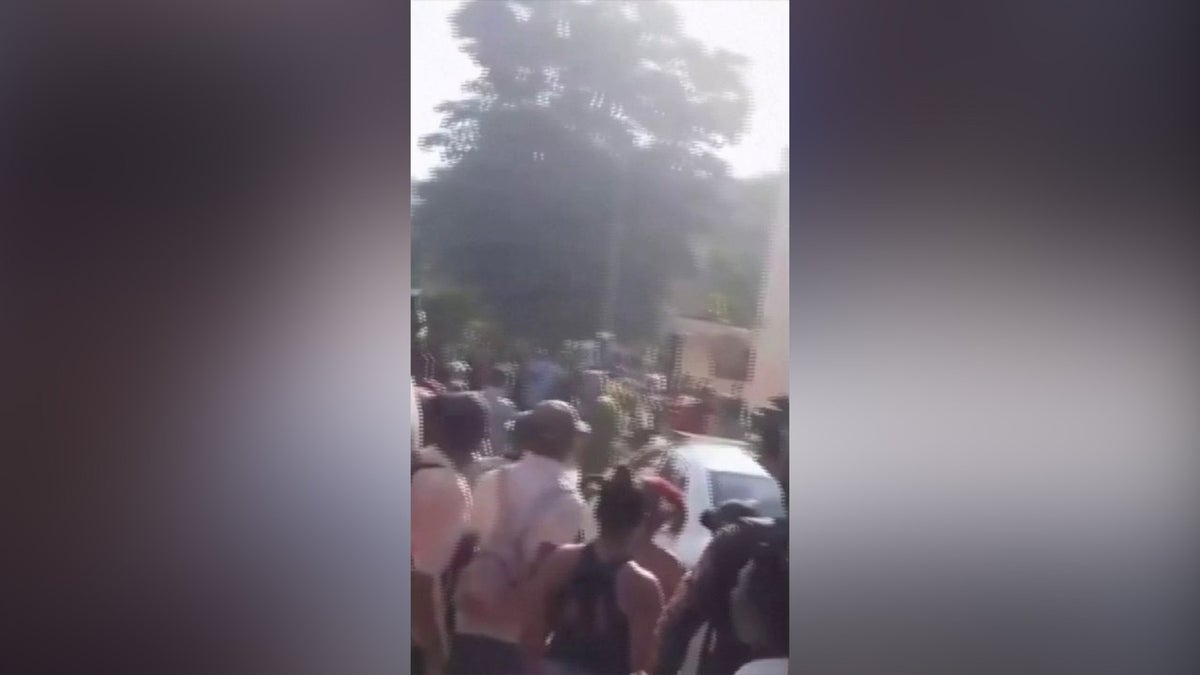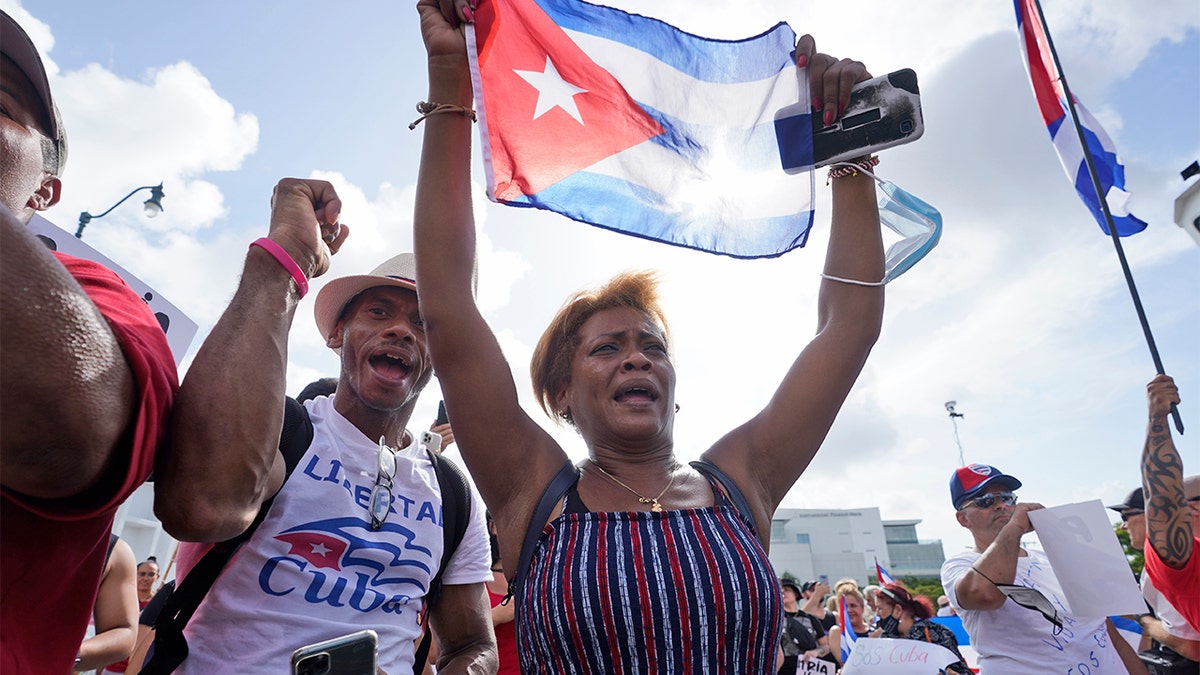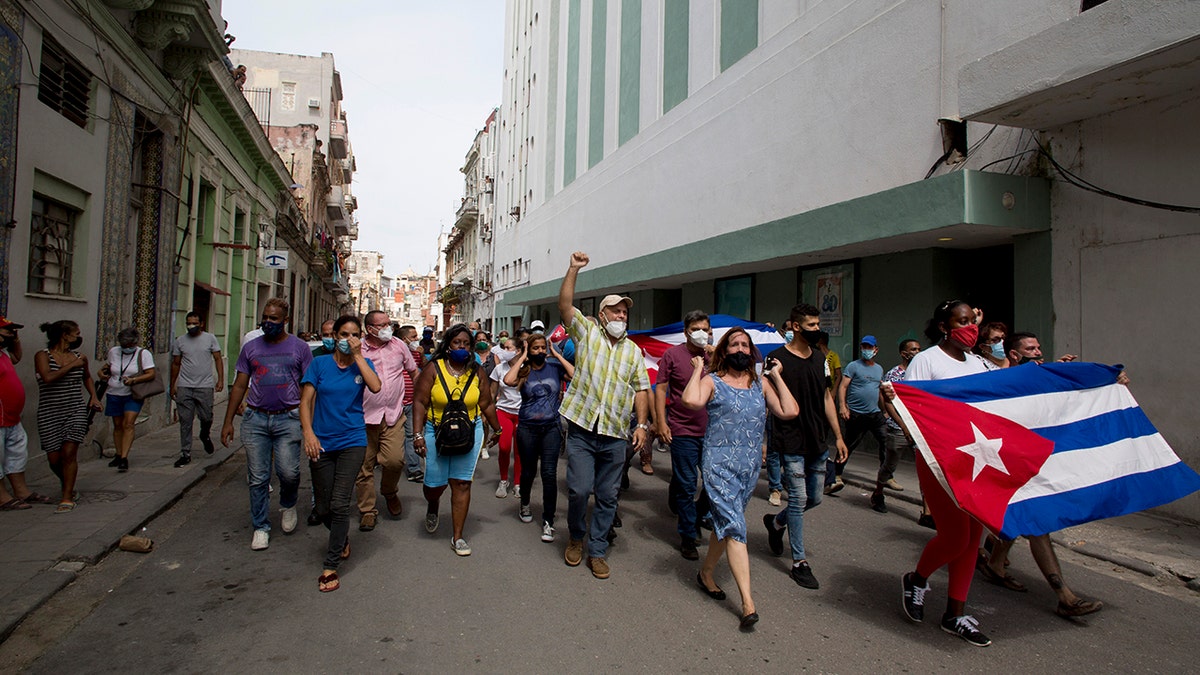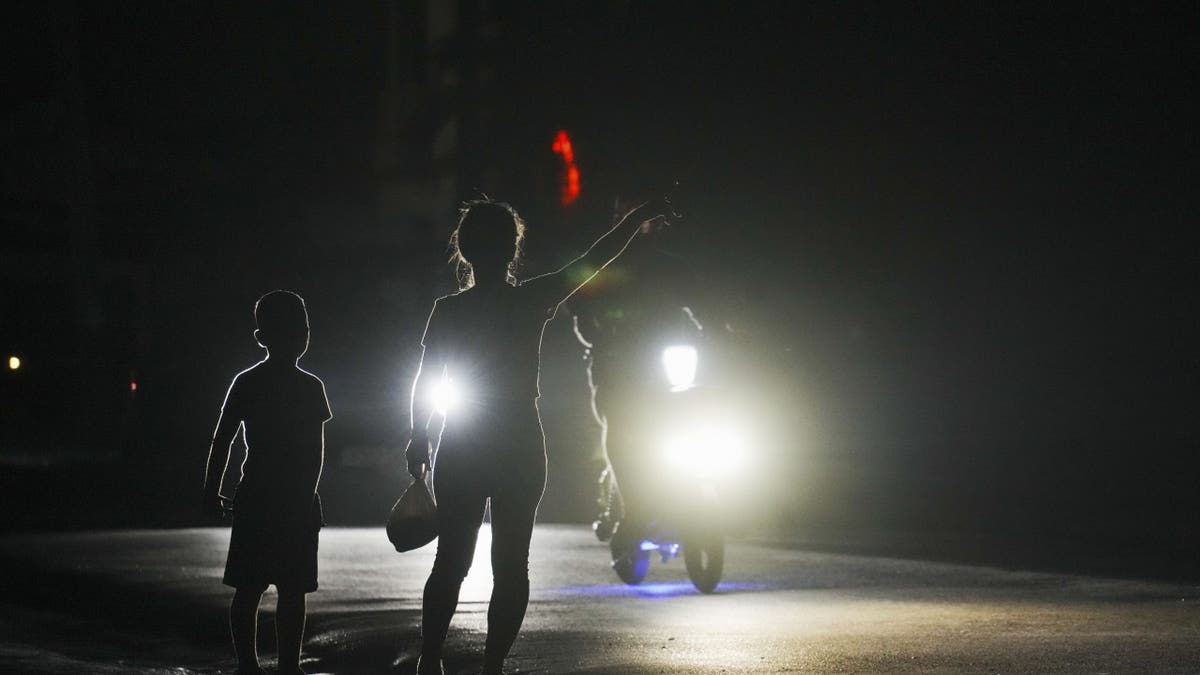Protesters take to the streets in Cuba over food, electricity shortages
Protesters in Cuba are demanding the government fix one of the worst ever economic and energy crises as blackouts and food shortages continue. (Reuters)
Protests have continued this week in Cuba over one of the island’s worst ever economic and energy crises as food shortages and blackouts push the country toward the "verge of collapse."
Florida Republican Sen. Marco Rubio took to X on Tuesday to say the disastrous situation was down to Cuba’s long-standing Marxist policies.
"The reason Cuba is on the verge of collapse is because Marxism always leads to hunger, poverty and shortages," Rubio said.

Protesters take to the streets in Cuba over food and electricity shortages on Sunday. (Reuters)
The senator, an ardent critic of the Cuban regime, took to the social media platform to push back on accusations levied by the Cuban Deputy Foreign Minister Carlos Fernández de Cossío, who suggested in a Monday interview with The Associated Press that the food shortages were due to the U.S.’ long-standing embargoes.
Fernández de Cossío accused the U.S. of "open interference [in] Cuba’s domestic affairs" after the State Department on Monday called on Havana to respect the protesters and "attend to the legitimate needs of the Cuban people."
"It was also cynical, as we said publicly, and hypocritical because it was referring to issues that are occurring in Cuba in which there’s an import and responsibility from the U.S. government," de Cossío said, calling the comments "disrespectful."

Dulce Diaz, center, and her brother Carlos Diaz, left, demonstrate on July 14, 2021, in Miami's Little Havana neighborhood as people rallied in support of anti-government demonstrations in Cuba. (AP Photo/Wilfredo Lee)
PROGRESSIVE HOUSE DEMS MADE SECRET 'HUMAN RIGHTS' TRIP TO CUBA AMID WORSENING BORDER CRISIS AT HOME
The U.S. has had trade and other financial embargoes on Cuba largely since the early 1960s, though certain exceptions permit the export of food products to the island nation so long as they are used in the private sector and not by the government.
"There is no U.S. food embargo on Cuba," Rubio reiterated Tuesday on X. "Last year Cuba imported over $300 million in food and commodities from the U.S."
Critics of the ongoing embargoes point to the economic sanctions re-enacted under the Trump administration, soaring food prices and the inability of Americans to travel to Cuba as factors that have exacerbated the energy and food shortages.
The State Department on Tuesday reiterated its stance on the ongoing protests and said it continues to watch the situation "closely."

Backers of the government march in Havana on Sunday, July 11, 2021. Hundreds of supporters of the government took to the streets while others protested against ongoing food shortages and high prices of foodstuffs. (AP Photo/Ismael Francisco)
CLICK HERE TO GET THE FOX NEWS APP

A woman and a boy attempt to hitch a ride during a scheduled power outage in Bauta, Cuba, on Monday. The island is facing an energy crisis, with waves of blackouts worsening in recent weeks. (AP Photo/Ramon Espinosa)
"There are protests across several cities in Cuba that were calling for electricity, food, and fundamental freedoms, and we are urging the Cuban government to refrain from violence and unjust detentions and calling on authorities to respect Cuban citizens’ rights for peaceful assembly," deputy spokesperson Vedant Patel told reporters.
"We stand with the Cuban people and continue to support their demands of human rights, freedom, prosperity, and a future for greater dignity," he added.










































